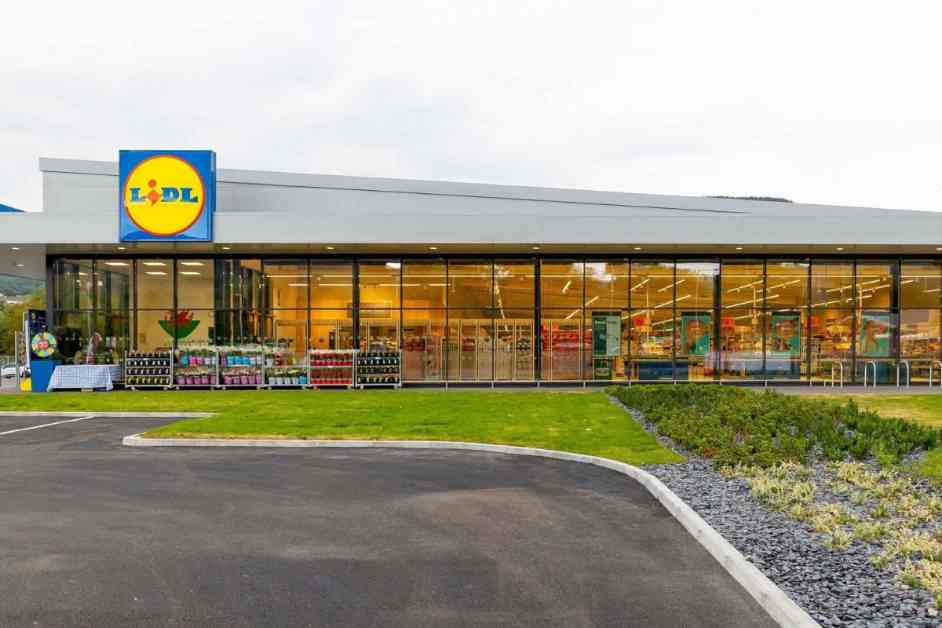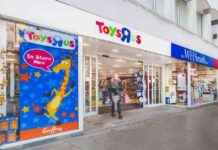Lidl, a popular supermarket chain, has recently faced backlash over its decision to make self-service tills cashless in some of its UK stores. This move has sparked controversy among customers, especially those who rely on cash for budgeting and controlling their spending.
The Cashless Transition
If you have visited a Lidl store recently, you may have noticed signs at the self-service tills announcing that they now only accept card payments. This shift towards a cashless system has left some customers feeling frustrated and inconvenienced.
Lidl initially introduced self-service checkouts in the UK in 2017, allowing customers to pay with both card and cash. However, the recent decision to go fully cashless at some stores has raised concerns among shoppers who prefer using physical currency for their transactions.
Criticism from Advocates
Martin Quinn, a prominent advocate for cash usage and founder of Campaign for Cash, has been vocal about his disapproval of Lidl’s cashless self-service tills. He highlighted the impact this change could have on customers, particularly those on lower incomes who rely on cash for their everyday purchases.
Quinn expressed his concerns about the potential longer wait times for cash users at the manned tills, as they would no longer have the option to pay with cash at the self-service checkouts. He believes that by eliminating cash as a payment method, Lidl is disregarding the needs and preferences of a significant portion of its customer base.
Lidl’s Response
In response to the criticism, Lidl stated that it always aims to provide a positive shopping experience for its customers. The supermarket emphasized that it closely monitors customer preferences and shopping habits to tailor its services accordingly.
While some Lidl stores have transitioned to card-only self-service tills, the company assured customers that manned tills still accept cash payments. Additionally, in stores where there is a clear customer preference for cash transactions, Lidl ensures that the option is available to accommodate those customers.
Lidl’s commitment to customer satisfaction includes having colleagues available at manned tills to assist shoppers who prefer using cash or encounter any difficulties during checkout.
Industry Trends
Lidl’s decision to go cashless at self-service tills reflects a broader trend in the retail industry towards digital payment methods. As technology continues to advance, many supermarkets and retailers are exploring ways to streamline the checkout process and enhance efficiency.
However, this shift has not been without its challenges, as some customers still prefer traditional payment methods like cash. The debate over cashless transactions versus cash payments highlights the importance of balancing convenience with inclusivity in retail environments.
Impact on Other Supermarkets
Lidl is not the only supermarket facing scrutiny over its checkout systems. Morrisons, another major grocery chain, recently announced plans to reduce the number of self-service tills in some stores.
Morrisons’ chief executive, Rami Baitiéh, acknowledged that the company had installed too many self-checkouts and was now reevaluating the balance between self-service and manned tills. This strategic shift aims to address customer concerns and optimize the checkout experience for shoppers with varying preferences.
The decision by both Lidl and Morrisons to reevaluate their checkout systems underscores the ongoing evolution of retail technology and the importance of catering to diverse customer needs in a rapidly changing market.
In conclusion, the transition to cashless self-service tills at Lidl has sparked a debate about the role of cash in modern retail environments. While digital payment methods offer convenience and efficiency, it is essential for supermarkets to consider the diverse preferences of their customer base and ensure inclusivity in their checkout systems. As the retail industry continues to evolve, finding a balance between technological innovation and customer satisfaction remains a key priority for supermarkets seeking to enhance the shopping experience for all customers.





















